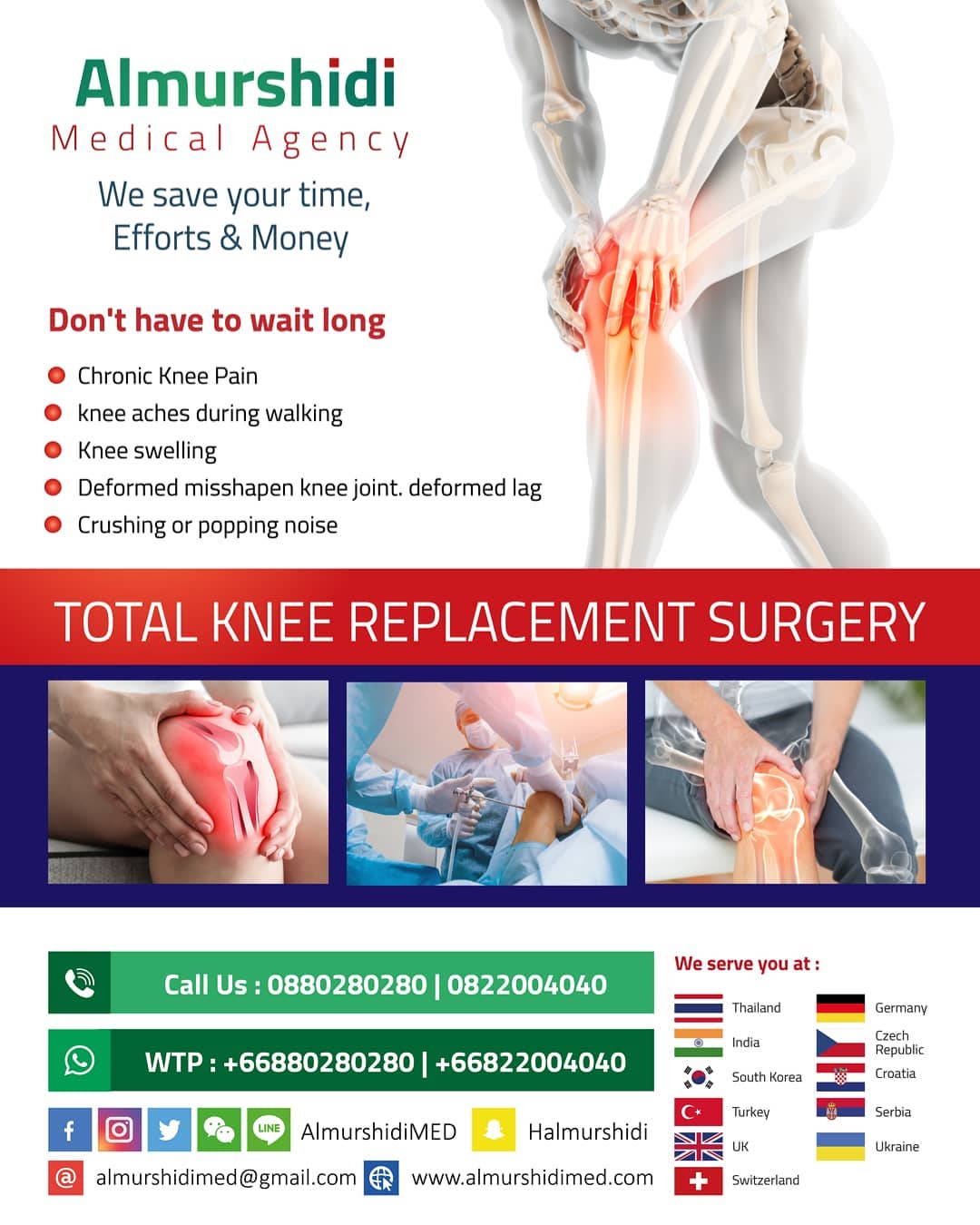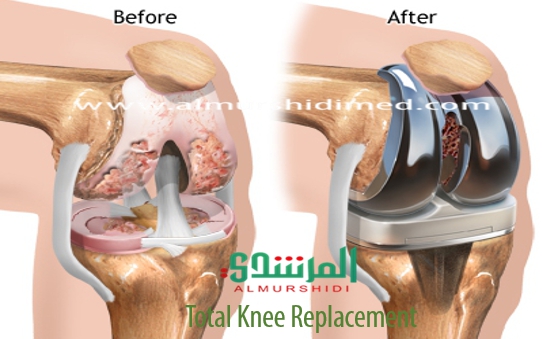

Relieve pain, restore proper function of the knee joint and improve the quality of life.
KNEE REPLACEMENT SURGERY or ARTHROPALSTY
In this procedure, the complete knee joint is replaced with an artificial joint, made of metal and plastic components. The procedure may be chosen for obese patients and those who have a severe joint dysfunction.
The damaged ends of the thigh bone (femur) and shin bone (tibia) are carefully cut away. The ends are precisely measured and shaped to fit the appropriately sized prosthetic replacement. The end of the femur is replaced by a curved piece of metal, and the end of your tibia is replaced by a flat metal plate. These are fixed using special bone ‘cement’, or are specially treated. A plastic spacer is placed between the pieces of metal. This acts like cartilage, reducing friction as the joint moves. The back of the kneecap may also be replaced, depending on the condition of the joint.
The joint should last around 15-20 years.
HOW TO KNOW IF NEED KNEE REPLACEMENT?
If your knee pain is so severe that it causes difficulty in walking and performing daily activities, knee replacement might be called for. However, it is mandatory that these symptoms be presented to a specialist for an accurate diagnosis. Doctors try and delay the procedure for as long as possible by using non-invasive treatment. However, if the disease is in an advanced stage, knee replacement is a means to achieve relief from pain as well as the return to daily activities.
HOW TO PREPARE FOR SURGERY?
Stay as active as you can. Strengthening the muscles around your knee with gentle exercises such as walking and swimming, in the weeks and months before surgery, will aid your recovery. Your physiotherapist will give you helpful exercises.
There are some things that you need to do before surgery. These include:
- Getting a medical checkup and tests such as blood and urine tests, ECG, x-ray and any other test to make sure you are healthy enough for an anesthetic and surgery.
- Have a list of any medication you are taking, as these may need to be stopped on your doctor’s advice and alternatives prescribed if required. They include some rheumatoid arthritis medications that suppress the immune system, which can affect healing as well as any anticoagulant medication.
POST-SURGERY CARE
After surgery, you will be moved to the Recovery Room where you will be closely monitored for a few hours. You may feel some after-effects of anesthesia such as a sore throat, vomiting, and drowsiness but you will be made as comfortable as possible.
You will have pain for a few hours after the surgery which is relieved with painkillers that may be given either through an epidural injection or as an injectable medication.
To avoid the risk of blood clots you should start moving around as soon as possible. Lying in bed for too long can cause some of your blood to pool in your legs. Try to exercise your legs in simple ways such as by flexing your ankle and rotating your foot. You may be given special support stockings to wear after surgery to help your blood circulation.
The earlier you get out of bed and start moving the faster the recovery. Your physiotherapist will assist you with this. You can start walking within 24 -48 hours after the surgery by using an assistive device and with the help of the physiotherapist. It is normal to experience initial discomfort while walking and exercising, and your legs and feet may be swollen.
Before discharge, you will be advised about exercises you need to do, how to care for your wound, how to manage the pain, and any equipment you may require, such as dressings, bandages, crutches, and splints.
Your discharge will be affected by how quickly you recover after the surgery, generally, patients are discharged between 4-6 days after surgery on one knee and between 8-10 days after surgery on both joints.
HOW LONG WILL A KNEE REPLACEMENT LAST?
Longevity of the prosthesis depends on the patient’s activity levels, weight as well as the accuracy of the implant placement. Recent studies have found common implants to be functional in 96% patients even after 20 years. However, it must be understood that implants are not as durable as the natural knee, and will eventually wear out and no assurance can be given about its longevity.
For more information please contact us: almurshidi.medical@gmail.com or line/instagram: almurshidiMED or whats app: +66 822 004040







